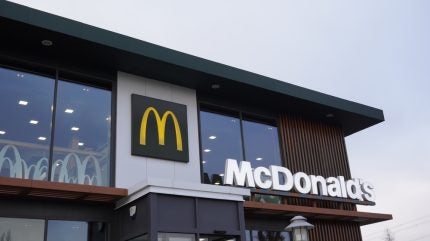
McDonald’s is taking significant steps to reduce its environmental impact, focusing on waste reduction and increasing the use of sustainable materials in its packaging and toy production.
The company aims to help protect the planet and ensure its business remains resilient by evolving its packaging strategy, adopting alternative materials, and improving waste management practices.
Progress towards sustainable packaging
By the end of 2023, McDonald’s had reached 86.7% of its goal to source 100% of its primary packaging from renewable, recycled, or certified materials.
Since 2018, the company has also reduced the use of virgin fossil fuel-based plastic in its Happy Meal toys by 63.7%.
In addition, 88.3% of McDonald’s restaurants in markets with advanced recycling infrastructure offered customers the opportunity to recycle or compost packaging items during 2023.
McDonald’s has been making strides to address waste-related challenges, particularly focusing on improving recycling infrastructure.
The company continues to explore opportunities for using reusables in its restaurants, as well as collaborating with various stakeholders to find local and global solutions.
Emphasis on circular economy
McDonald’s is working towards a circular economy approach, aiming to make better use of materials throughout the life cycle of its products.
This includes reducing, reusing, and recycling packaging materials.
The company is targeting a global shift towards the use of 100% renewable, recycled, or certified packaging by 2025.
Efforts are being made to make it easier for customers to recycle packaging in restaurants, particularly where the infrastructure exists.
McDonald’s is also working with waste management companies and suppliers to optimise packaging for recycling.
Clear on-pack labelling is another key initiative aimed at helping customers make informed recycling choices.
Collaborations to expand impact
McDonald’s recognises that achieving its environmental goals requires collaboration with external partners.
It is working with various organisations, including the World Wildlife Fund and the NextGen Consortium, to tackle issues related to single-use food packaging waste and create more sustainable solutions.
The company is also part of the Bioplastic Feedstock Alliance and engages with national packaging organisations in countries such as Australia, Canada, and the US to advance its circular economy ambitions.
These partnerships are designed to leverage collective action and maximise the potential for impact, with the ultimate goal of reducing the environmental footprint of McDonald’s restaurants around the world.



